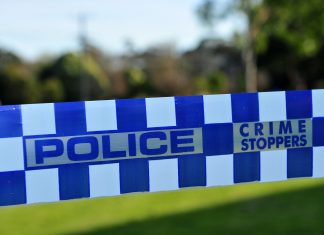
ZAIDA GLIBANOVIC
By ZAIDA GLIBANOVIC
GIPPSLAND Regional Public Health Unit (GRPHU) is reminding people to stay COVID-safe this silly season. Annelies Titulaer, operations manager at GRPHU, spoke to the Express about minimising community transmission during this festive period. “It’s important we connect with family, friends, and loved ones, especially this time of year with many festive occasions,” she said. “But it’s important we work together to reduce severe consequences for those of a high risk. “We’re actually on the tail end of a wave at the moment, so it’s looking like we’re coming out the other side, and it’s starting to plateau a little bit. “We’ve learned to respond to COVID, so now our key indicators for indicating community transmission for COVID-19 are related to quantitative waste water surveillance, hospitalisation data, and anti-viral prescriptions.” Since restrictions have eased and reporting methods are not as well documented, GRPHU has been using those three indicators to gauge what is happening in terms of transmission in the area. The GRPHU has not recorded any results that are out of the ordinary, and its three indicators suggest the same trends across the state. “Community transmission will continue to increase, and we’ll expect waves,” Ms Titulaer said. “COVID-19 is not necessarily a seasonal condition, so we’ll see waves of community transmission throughout the rest of the year.” Ms Titulaer said there are six steps to stay ahead of COVID this season. These include: Wear a mask; Get vaccinated; Let fresh air in; Get tested; Stay at home if unwell, and; Talk to your doctor. “Wearing a mask is a really good idea, and it can help to protect ourselves as well as others from the virus,” Ms Titulaer said. The health advice still recommends getting vaccinated as it continues to be a great prevention mechanism. “They are still really important and effective against our strains of COVID-19 that are circulating in our communities,” she said. Another easy method people can use to reduce the spread of COVID-19 includes letting fresh air in. “Letting fresh air in, an example of that is to go outside for meetings as the weather begins to warm up or celebrating the festive season outdoors,” Ms Titulaer said. If you feel sick, Ms Titulaer says a rapid antigen test (RAT) is an essential tool in understanding your level of risk. “Get tested and be aware of where you’re going. If you’re going to a high-risk place like a hospital or if you’re visiting relatives or friends in residential aged care facilities, it’s a really good idea to do a RAT test before going to make sure we’re reducing the threat of COVID to our loved ones,” she said. It is recommended that you stay home if you feel unwell to reduce the spread of all colds and flu. “Staying home if you are unwell applies not only to COVID but so many diseases as well,” Ms Titulaer said. And lastly, you should talk to your doctor if you are unwell or test positive for COVID-19, as you might be eligible for anti-viral prescription medication. Boosters have been an integral part of keeping communities safe and preventing infection. “If we don’t get COVID-19, then we can’t spread COVID-19,” Ms Titulaer said. The advice on boosters comes from the Australian Technical Advisory Group on Immunisation (ATAGI). In September, ATAGI suggested that all persons 75-years-old or older get a booster shot if they hadn’t gotten one in the previous six months. It also urged the following groups to consult with their doctor to see whether they required a second booster shot for the year: – Adults between the ages of 65 and 74, and/or; – Adults aged 18 to 64 years with highly weakened immune systems. To find out more information, visit the Coronavirus (COVID-19) Victoria Better Health website at betterhealth.vic.gov.au/coronavirus-covid-19-victoria









